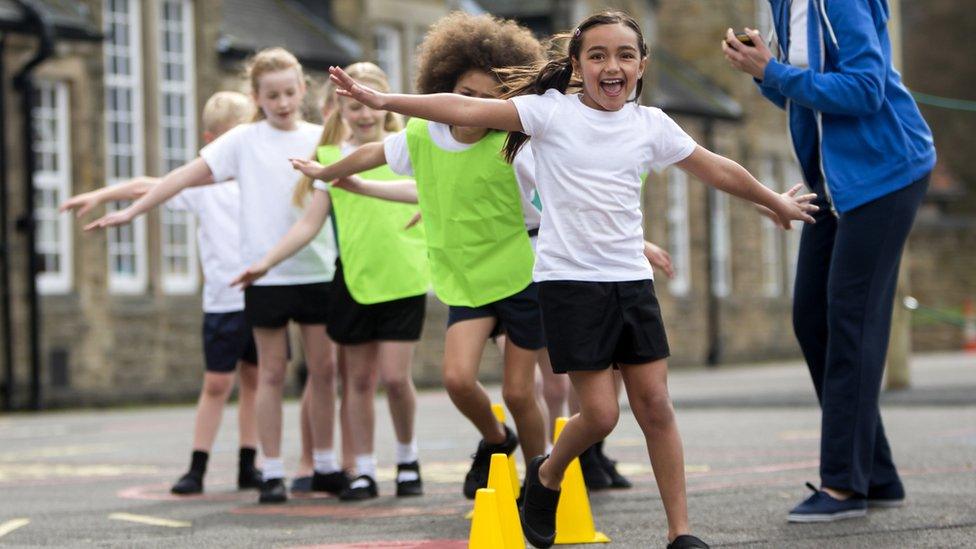The nursery putting fitness at the heart of learning
- Published
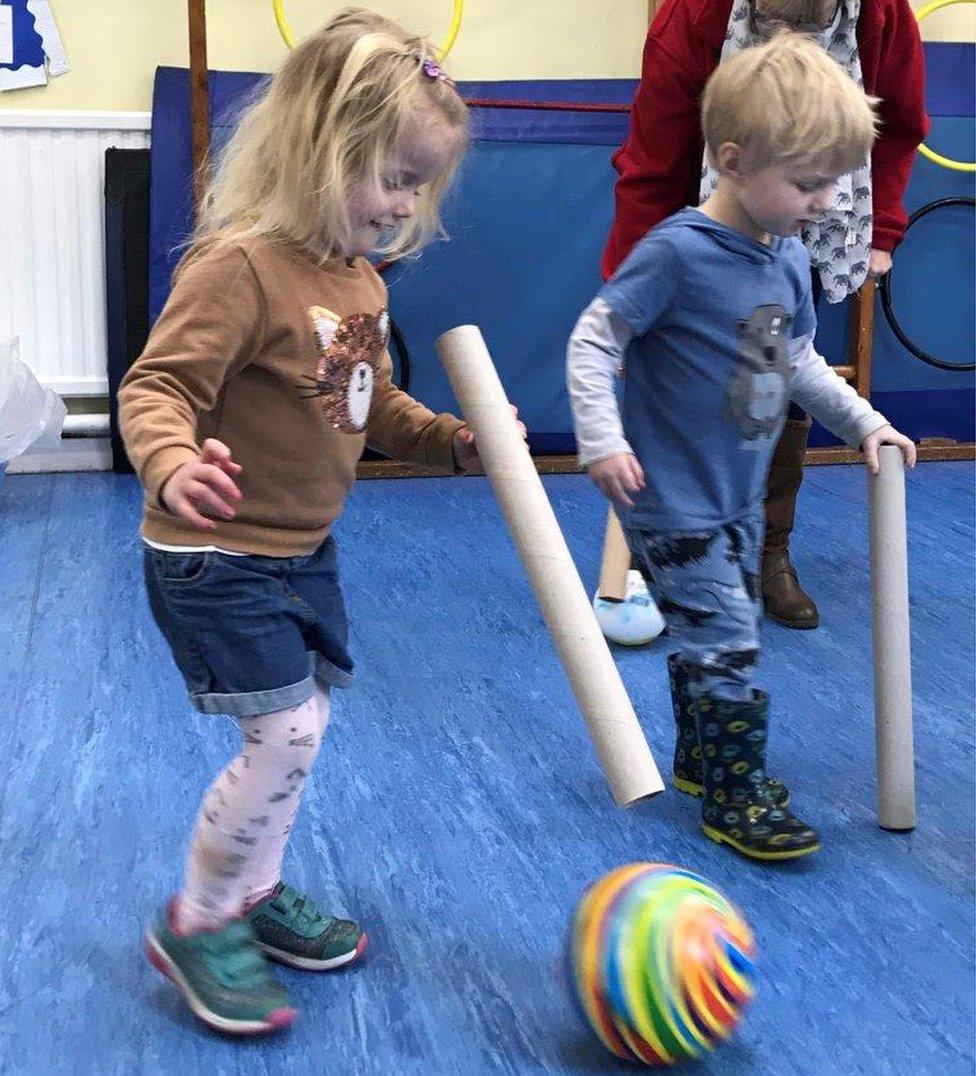
The statistics are terrible - study after study shows children all over the world are weaker, do less exercise and are less fit than in the past.
In England alone, despite a slight improvement last year, fewer than half of five to 16-year-olds, external achieve the government's recommended 60 minutes' exercise a day, external and poorer children are most likely to miss out.
Many experts think physical activity needs to start at a very young age, and one place taking up the mantle is Teddy Bears Nursery in Washford, West Somerset.
Teacher Alison Welch leads a physical activity programme there, designed to boost children's physical skills and teach them that exercise can be fun.
One game involves children using cardboard tubes to push plastic balls around the hall, aiming for a series of coloured hoops laid on the floor.
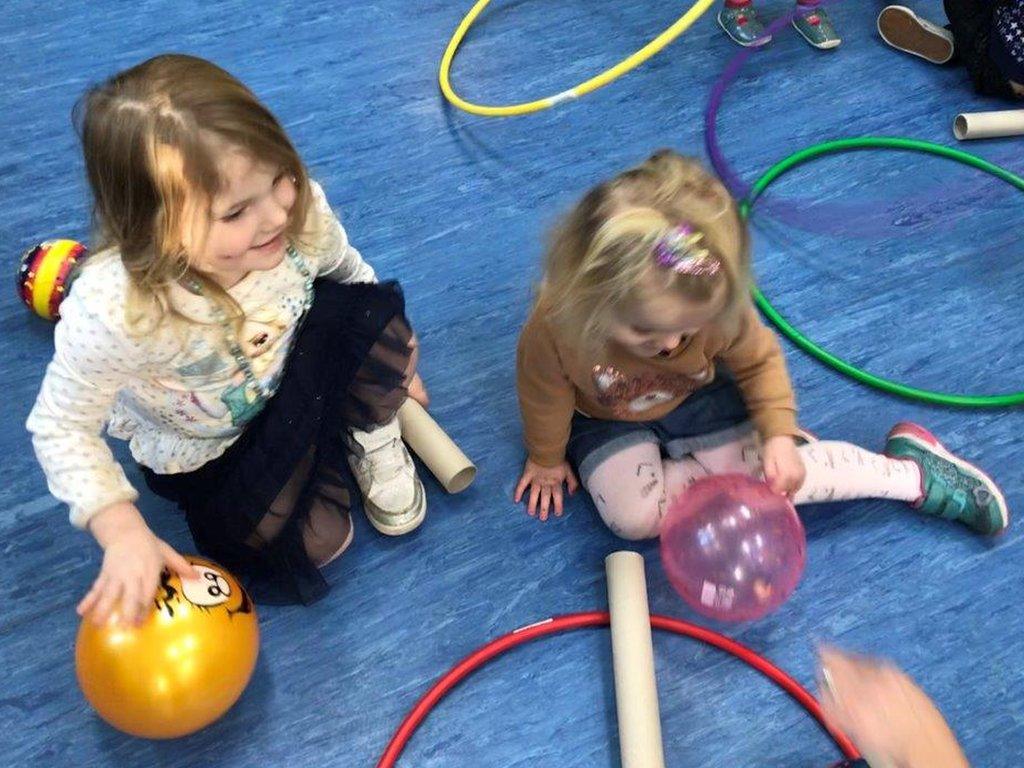
It is all part of Healthy Movers, a government-funded programme for two to four-year-olds.
It is run by charity Youth Sport Trust in 15 nurseries and early years centres in West Somerset,, external the area ranked bottom in the government's Social Mobility Index., external The index measures the chances that a child from a disadvantaged background will do well at school and get a good job.
Lack of exercise is a huge factor in poor physical health and obesity. It is also linked with poor emotional wellbeing, and if children reach reception age without the core physical strength to sit straight in a chair or to grip a pencil, they start school at a massive disadvantage.
'Physical literacy'
Youth Sport Trust says children must start early, aiming to boost fitness, strength, agility and skills before they have the chance to be self-conscious about their bodies, and start trying to avoid school PE.
Experienced PE teacher Flo Holmes, who co-ordinates the scheme, blames the childhood fitness slump on the burgeoning use of screens from babyhood, while fewer children play outside these days.
She quotes research showing a mid-primary school tipping point,, external where girls in particular decide whether or not they enjoy being physically active.
"We just need to be making sure that physical activity is fun and enjoyable," she says, before adding it is also about "physical literacy".
"We mean improving their physical skills but also their motivation, their confidence and so their enjoyment."
In the hall, the children's focus is paying off. Like mini hockey players, they weave the plastic balls around each other aiming for the correct coloured hoops with remarkable success.
Flo is impressed. "I've taken Year 7 girls and they wouldn't be able to do that," she says.
So far, only a few hundred children have taken part in the programme since it began in October 2018, but the interim results are encouraging.
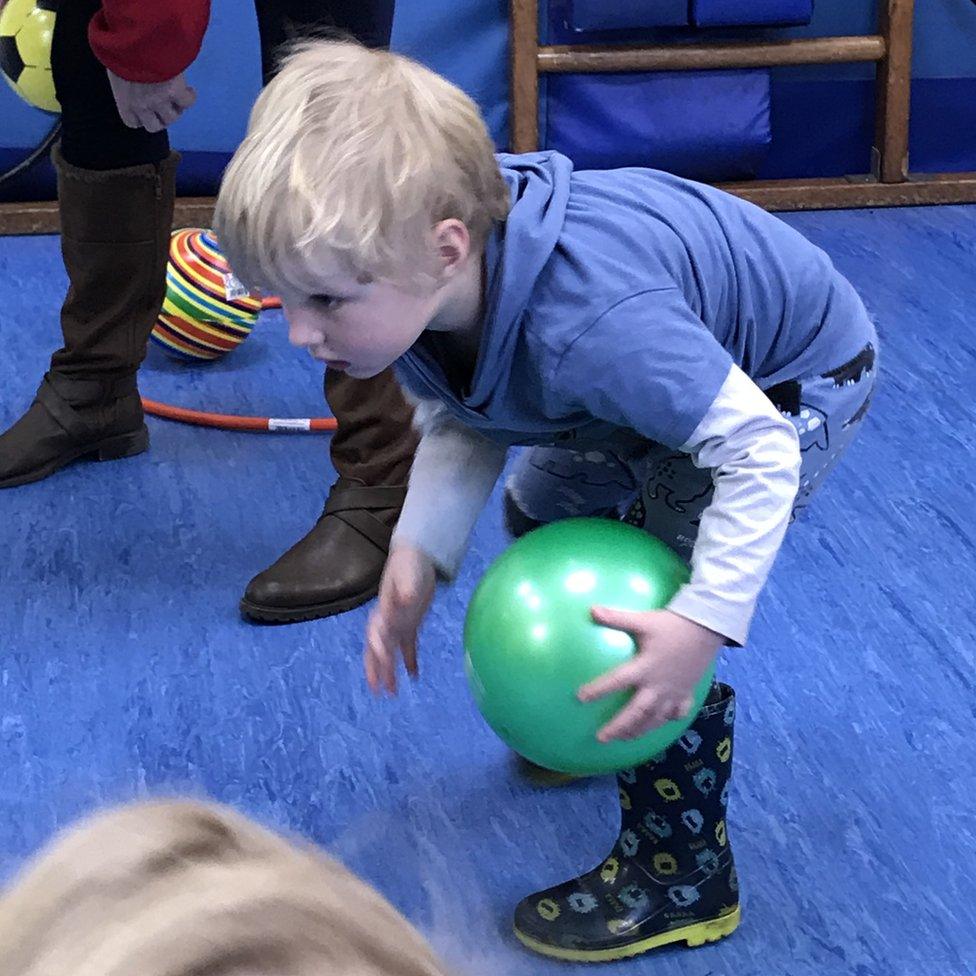
The children are more active than expected, more physically confident and display better physical skills, object control and "locomotion", say their teachers.
"Some of the movements we might be doing are not just gross motor skills, they're fine motor skills as well," Flo explains.
"We might be wiggling and weaving a ribbon or scarf and the children think they're just having a lovely time. But actually what we're really doing, is looking at their finger and thumb formation, and we're using the left and the right hand, so we're just trying to make control of a pencil that much easier for them."
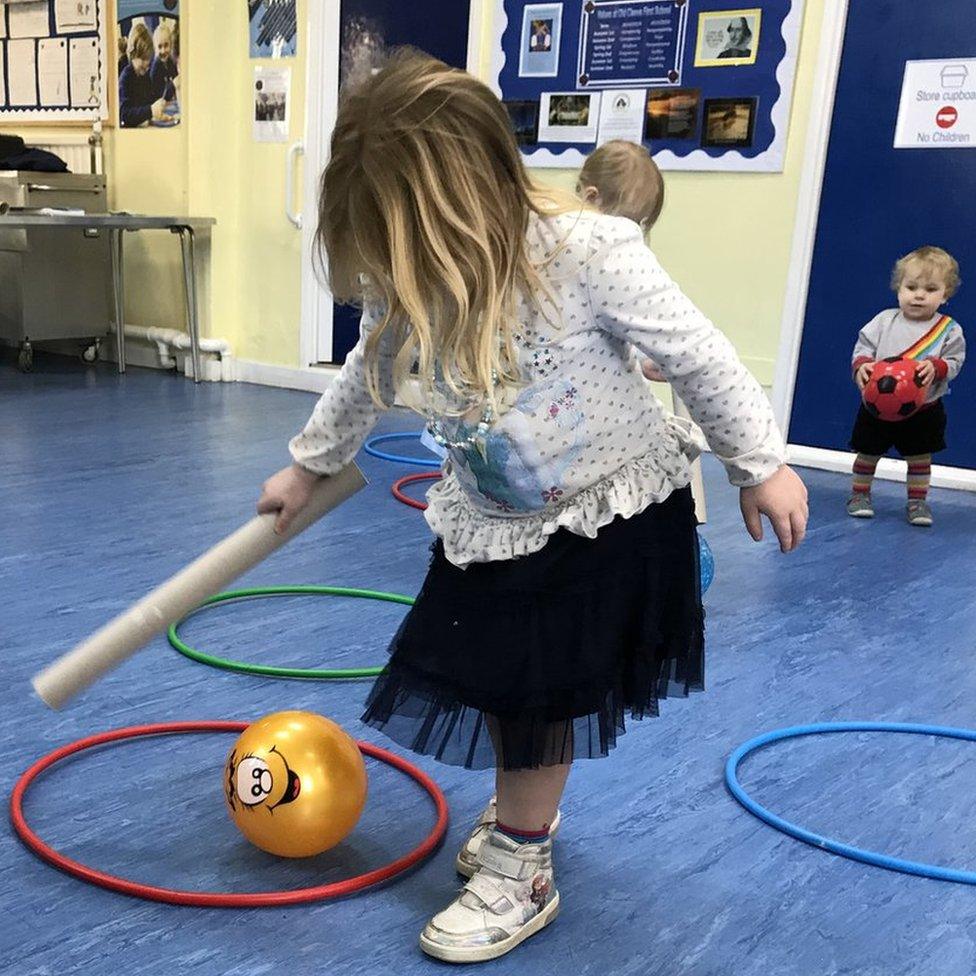
Alison says she "absolutely, wholeheartedly" loves the scheme.
She says last year's nursery children, who were the first to do the programme, were far more school-ready than previous year groups.
"I think it really has made a difference to their ability to sit and concentrate, and their listening skills as well."
She is hoping for a similar boost for this year's group.
Alison says the children are so enthused by the activities, they repeat them in the playground and at home, improvising with whatever objects they have available. This helps their creativity and resourcefulness in the classroom.
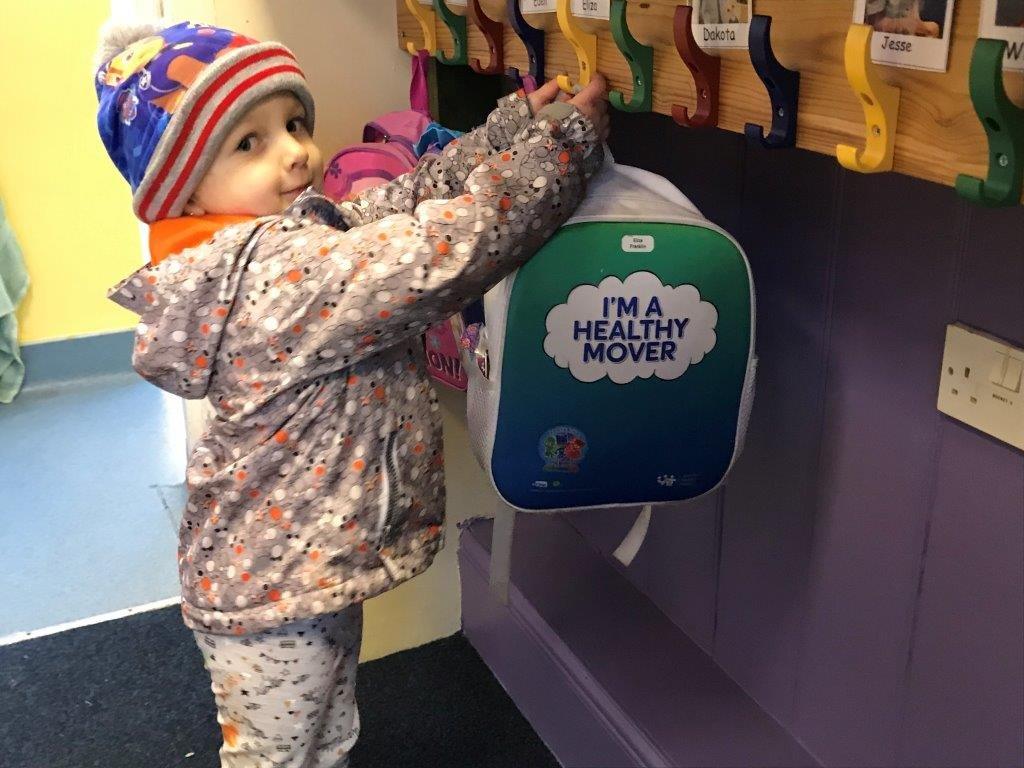
Each child gets a backpack including a ball, a beanbag and activity cards, to help parents continue the good work.
In the classroom, Eliza, four, proudly shows off her name, which she has written at the top of her latest painting.
Her mum Lucy says she has detected a vast improvement in Eliza's co-ordination.
"She made her own games up and we're playing them at home. So she would always find something like a bowl and would be chucking her beanbag into the bowl, trying to aim," says Lucy.
"I think it inspires them doesn't it, and to think outside the box."
Alithea is just three and was premature so has always struggled with her co-ordination, according to her mum Katie.
"It's really nice to see a massive improvement. I just want her to be the best she can be at anything she wants to do," says Katie.
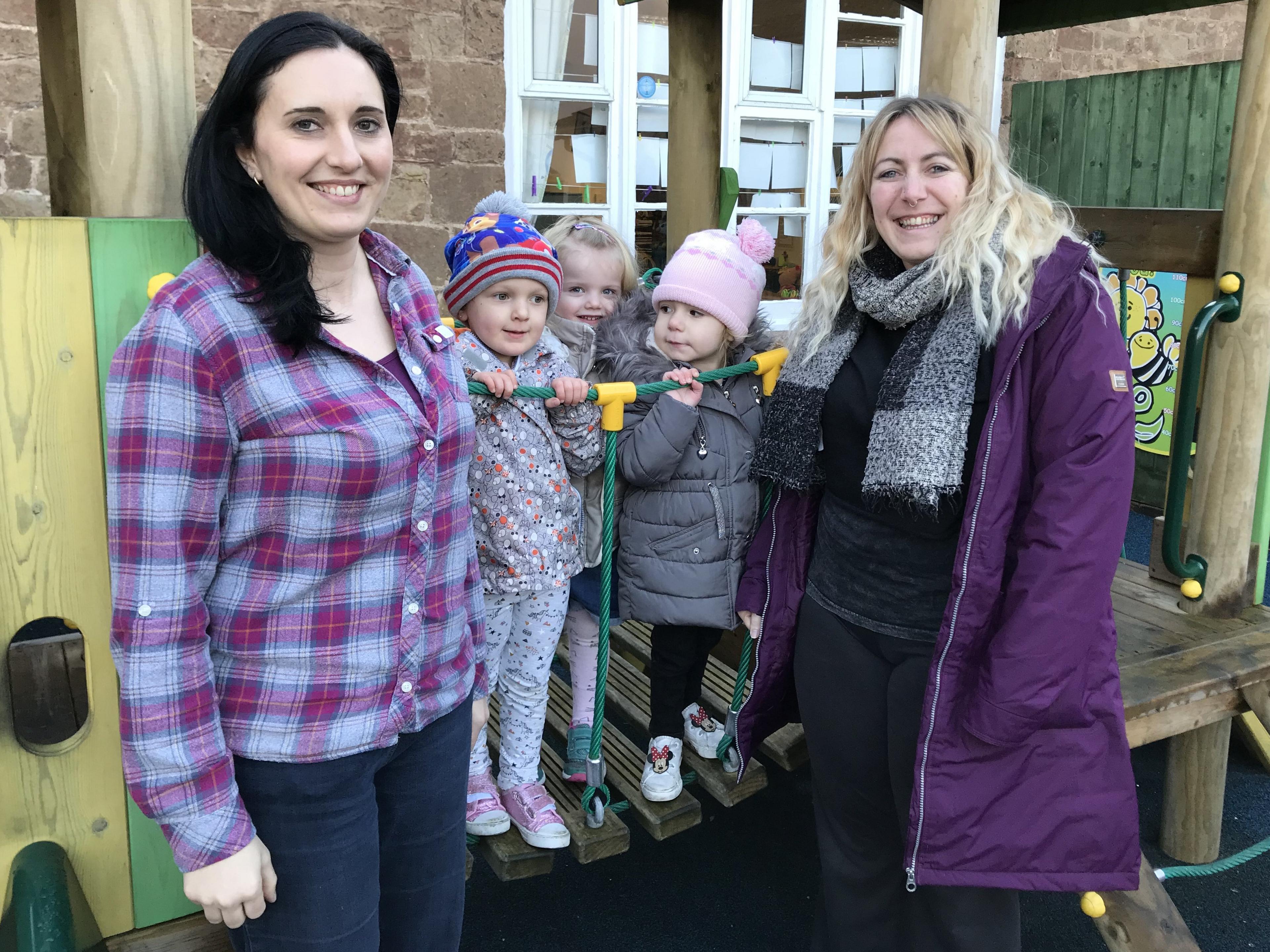
Lucy (L) and Katie (R) say the change in their children since the programme began is remarkable
Elsewhere the children have pushed a row of chairs into a line.
"Is it a train?" asks nursery nurse Kirsty.
"No it's a helicopter and we're going to Costa Rica to feed the animals," comes the reply.
The "pilot" decides she wants to land to load "food for the animals", and the children climb off their seats to collect it in the shape of wooden bricks and other toys, before setting off again on their exciting journey.
- Published22 November 2019
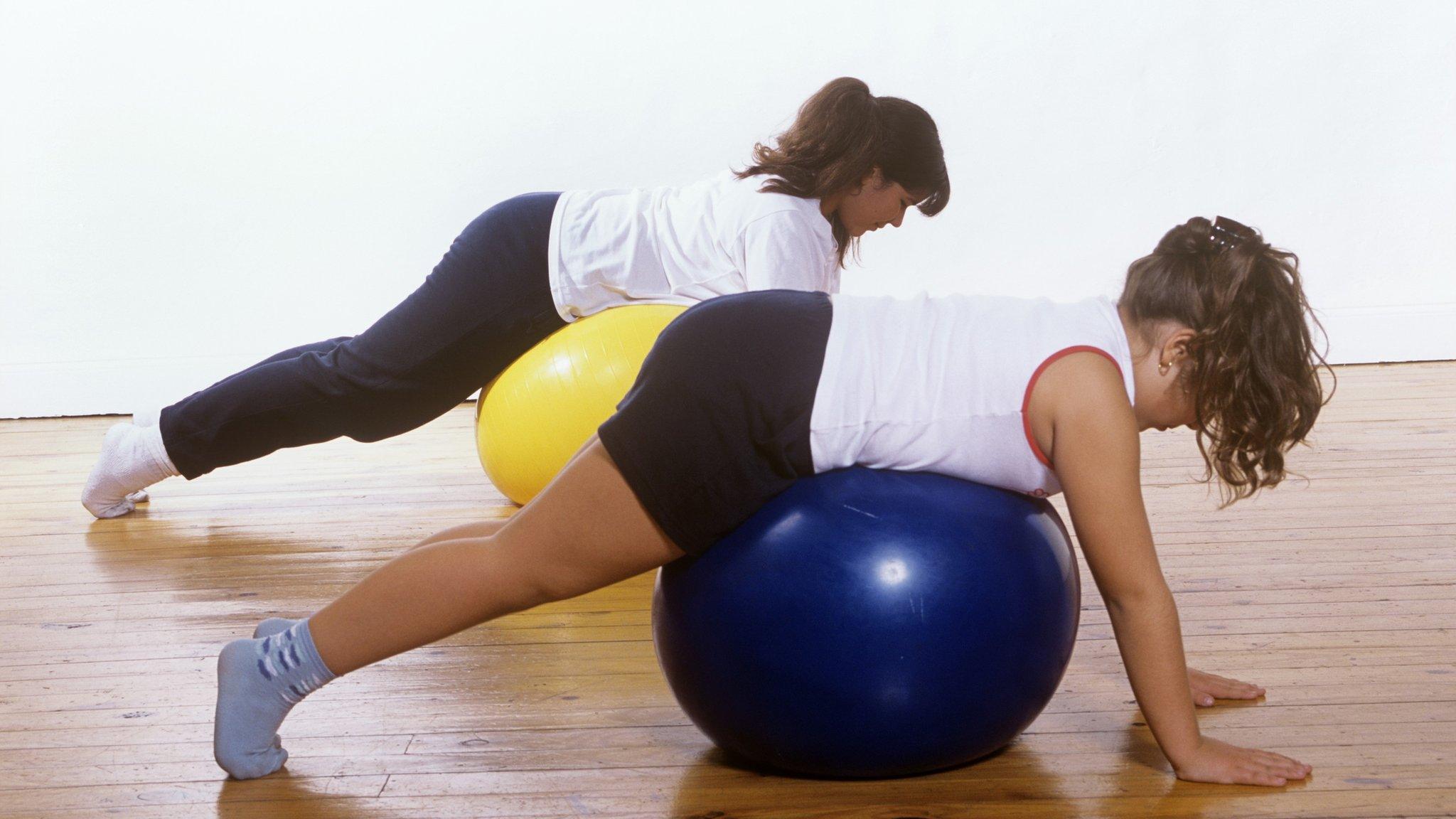
- Published26 September 2018
